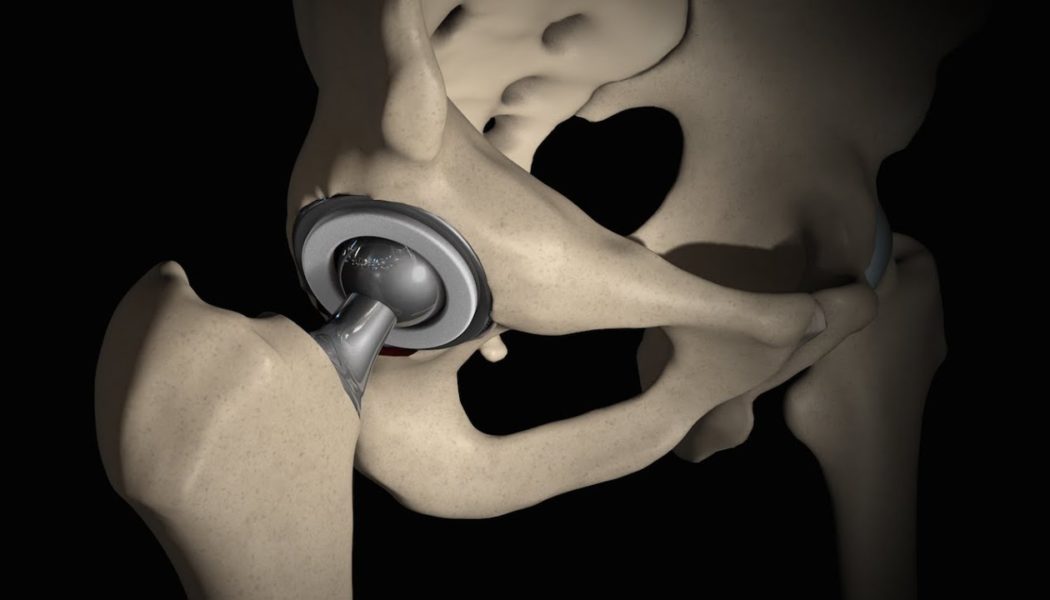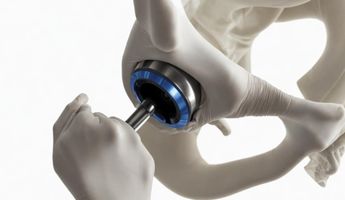Hip Replacement in France
Find the best clinics for Hip Replacement in France
No pricing info available
Turkey offers the best prices Worldwide
Price: $ 218
From 88 verified reviews
Stephanie Saradin, 21 September 2020
Hospitalisée pour une intervention en cardiologie, le personnel est très aimable et a l'écoute, voir même au petits soins. Les locaux sont propres et le matériel utilisé est vraiment de pointe
From 161 verified reviews
latifa Rabhi, 06 September 2020
Very fast support, with highly qualified and human staff.The rooms are beautiful and very quiet.Calm and gentleness in this hospital, I highly recommend.
Clinique Saint Charles, can be found in Chemin du Penthod, Lyon, France and offers its patients Hip Replacement procedures as well as 114 other procedures, across 5 different procedure categories. At present, there is no pricing information for Hip Replacement procedures at Clinique Saint Charles. The pricing information is quite specialised, so it's only available on request. Currently, there's no information available about the doctors at the Clinic, and Clinique Saint Charles is accredited by just one known accreditations institute, ISO 9001:2008
WHY US?
At Medijump, we're making medical easy. You can search, compare, discuss, and book your medical all in one place. We open the door to the best medical providers worldwide, saving you time and energy along the way, and it's all for FREE, no hidden fees, and no price markups guaranteed. So what are you waiting for?

Free

Best Price

Widest Selection

Risk-Free
What you need to know about Hip Replacement in France

Before getting Hip Replacement surgery, you might feel pain and inflammation in your joint, your mobility might be decreased and you might experience difficulty in walking because your joint aches. After the surgery, you would feel relief from pain and inflammation. Your movements will be smooth and frictionless.
Hip Replacement or arthroplasty is the surgical removal of a damaged hip joint and replaced by an artificial one. The hip prosthesis is implanted in place of the original hip joint. It is made up of metallic and plastic parts. Surgery can be of two types:
- Total Hip Arthroplasty (THA) - involves the removal of both the acetabulum and head of the femur.
- Partial or Hemi Hip Replacement - only the head of the femur is replaced.
It is usually performed on those with chronic hip pain, often associated with old age, but can also be performed in cases of severe accidents, bone fractures, osteoarthritis, rheumatoid arthritis, bone tumors, avascular necrosis, and other bone abnormalities.
What is the cost of Hip Replacement in France?
The financial outlay for Hip Replacement in France can fluctuate significantly, due in large part to the patient's unique health status, intricacies of the procedure, mastery of the surgical team, and the facilities availed by the clinic. It's paramount to note that the total quote usually encompasses not just the surgery, but also care before and after the procedure, anesthesia, hospital costs, and possibly, physical restoration costs.
Individuals are urged to reach out to healthcare providers in France for exact cost estimates and research into which insurance coverages might or might not be applicable. Prospective patients must deliberate over the financial implications of Hip Replacement, inclusive of both upfront expenses and possible long-term healthcare costs linked to subsequent care and rehabilitation.
What does a Hip Replacement Procedure Involve?
The painful joint can be approached from four sides:
- Anteriorly
- Posteriorly
- Antero-laterally
- Laterally
The general procedure is as follows:
- You are anesthetized to help you avoid pain during the surgery. After this, an incision is given whose size varies in accordance with the surgery being performed. Muscles are displaced at sides to make the joint visible. Cartilage, tendons, and ligaments are ligated. A saw is used to separate the ball portion of the joint from the femur. It is removed and a hip prosthesis is inserted in place of it. An adhesive material called Polymethylmethacrylate (PMMA) cement is used to fix the prostheses there. Muscles are then re-attached to their place and the incision is stitched. Bandages are applied to cover the cut.
- Nowadays, another common technique known as a minimally invasive method is used by surgeons, in which 1 or 2 cuts are given, 2 to 5 inches long. After this, standard hip replacement surgery is performed. This method is prevailing because of its advantages, such as less blood loss and pain, less healing time and less stay at hospital duration.
How Long Should I Stay in France for a Hip Replacement Procedure?
You have to stay at the hospital for 4 to 8 days after surgery. Length of stay in the hospital varies with age, health and physical condition. People above 70 years of age require a 2-week stay at the hospital. Other factors such as gender, obesity and any type of physical ailment help in determining the length of your stay. Previously, hip replacements required a much longer hospital stay but with the advancement of medical science, this duration is decreasing. But you will be required to stay in France for at least 2 more weeks after being discharged as follow up appointments with the surgeon will be required. After that, further check-ups with your local doctor back home will be sufficient.
What's the Recovery Time for Hip Replacement Procedures in France?
Again, the recovery time depends upon your natural healing capacity and will power. Stitches are removed 2 weeks after the surgery. On average, 6 to 12 weeks are needed for complete recovery. Healing time varies in accordance with the type of surgery. In the case of minimally invasive surgery, you might be able to walk on the same day with the help of your medical staff. You can continue to drive 6 weeks after the operation.
What sort of Aftercare is Required for Hip Replacement Procedures in France?
Following aftercare factors should be kept in mind after being discharged from the hospital:
- Visit your doctor on a regular basis. Take your medicines as and when prescribed by the doctor.
- Make sure that a family member or a friend is available to look after you.
- There should be safety handrails along the stairs and shower. Take a shower while sitting.
- Raised toilet seats should be used for some time.
- Keep your hip above the level of your knees. Use pillows to lift it up while sitting.
- Eat healthy and nutritious food. Follow a diet plan made by an expert.
- Use walking aids such as crutches and walkers to move around.
- Avoid unnecessary excessive movement. Use a grabbing stick to reach the required objects.
- Try to void climbing up the stairs.
- Avoid contact with water in the early few days. A wet bandage can be the cause of infection in your wound.
- Use ice packs to help the swelling. They are useful in reducing inflammation.
- Avoid rapid movements immediately after surgery. Give yourself some time to recover.
What's the Success Rate of Hip Replacement Procedures in France?
58% of hip replacement surgeries have been reported to last for 25 years or more. But the average is over 15 years, after which metallic or plastic hip prostheses wear out. The success rate is 90 to 95% after 10 years of surgery. It falls to 80-85% after 20 years. The procedure is extremely effective in restoring your ability to walk and run and these surgeries are almost always successful. They can go wrong only in cases of infection and clot formation. A clot can cause pulmonary embolism and ultimately death, therefore, utmost care should be taken to avoid infection and clot formation.
Are there Alternatives to Hip Replacement Procedures in France?
Hip replacement should never be the first option. There are some non-surgical alternatives to it. Some of them are:
- Viscosupplementation: in this method lubricants are injected into the joint. Increased lubrication decreases friction and smoothens the joint movement.
- Stem Cell Therapy: an injection of mesenchymal stem cells is given into the joint which promotes new cell production and growth. Ultimately decreasing pain and inflammation.
- Cortisone Shots: these are steroidal injections which work by decreasing inflammation and increasing movement.
- Hyaluronic Acid: these injections increase lubrication at the joint allowing smooth movements.
- Plasma Rich Protein Injections: plasma proteins are separated from your own blood by centrifugation. Growth factors are injected into the joint which promotes the growth of cells.
- Physiotherapy: this is very helpful in decreasing joint pain. Special exercises are performed under the supervision of an expert. Joint mobility is increased.
- Cartilage Transplant: in this method, either the cartilage is grown and inserted into the joint or the bone is stimulated to increase cartilage growth.
What Should You Expect Before and After the Procedure
Before undergoing a Hip Replacement, it is typical for patients to participate in a comprehensive health check-up involving bloodwork, radiography, and other examinations. This health assessment aids in evaluating the patient's overall wellbeing and surgical preparedness. Patients are commonly encouraged to lead a balanced diet and lifestyle, regulate any persistent health conditions, and avoid selected medicines. A transparent conversation with the healthcare provider about any doubts or worries is crucial to having a well-understood expectation before the procedure.
After the surgical operation, it is reasonable for patients to feel an initial period of discomfort and pain, mitigated with the use of appropriate medication. Proper care for the surgical site, safeguards against infection, and preventative measures against blood clots are all critical post-operation care. Immediately embarked upon is the recovery process, which is pivotally dependent on rehabilitation, inclusive of physical therapy.
What are Potential Risks of Hip Replacement?
Hip Replacement, as with any surgical technique, inherently is associated with several possible risks and complications. Although infrequent, these could encompass conditions like:
- Infection
- Blood clotting
- Hip displacement
- Fracturing
- Variations in leg length
- Issues related to the prosthetic.
- Allergic reactions to anesthesia
Being aware of these plausible difficulties would aid patients in having a comprehensive discussion with their medical provider, thus allowing them to make a well-informed decision about whether to go ahead with the treatment plan.
Whilst the information presented here has been accurately sourced and verified by a medical professional for its accuracy, it is still advised to consult with your doctor before pursuing a medical treatment at one of the listed medical providers
No Time?
Tell us what you're looking for and we'll reachout to the top clinics all at once
Enquire Now

Popular Procedures in France
Prices Start From $218

Prices Start From $218

Prices Start From $2,050

Prices Start From $530

Recommended Medical Centers in France for Hip Replacement

- Interpreter services
- Translation service
- Religious facilities
- Medical records transfer
- Medical travel insurance
- Health insurance coordination
- TV in the room
- Safe in the room
- Phone in the room
- Private rooms for patients available

- Interpreter services
- Translation service
- Religious facilities
- Medical records transfer
- Medical travel insurance
- Health insurance coordination
- TV in the room
- Safe in the room
- Phone in the room
- Private rooms for patients available

- Interpreter services
- Translation service
- Religious facilities
- Medical records transfer
- Medical travel insurance
- Health insurance coordination
- TV in the room
- Safe in the room
- Phone in the room
- Private rooms for patients available



